For the vast majority of us, 2020 was a dystopian heap of trash filled with bad actors and bad renditions of John Lennon’s “Imagine.” Plus, there was the haunting spectre of a U.S. presidential election. And repeated police violence that culminated in global fights for racial justice. And, you know, a catastrophic pandemic.
How did we survive? Thanks to a few sparkling, sequined queers who ushered us through the longest year ever, of course. They were our guiding hand as we waded through the garbage, the faint calls of yaaaas queen coming from the other side.
And then there were the villainous chumps chucking junk at us from below, muffling the angelic choruses of freedom and equity and fabulousness. They’re the bad taste that must be cleansed from our collective palettes—the kind of nastiness you just don’t want to bring into 2021.
What would 2020 have been without our righteous queens and shady bitches? In this inaugural list, the editors at Xtra look back at the past 366 days (that’s right), celebrating the best and condemning the worst of a year unlike any other.
JUMP TO: Our righteous queens / Our shady bitches
👑 Our righteous queens 👑
Janaya Khan and the queer activists fighting for racial justice
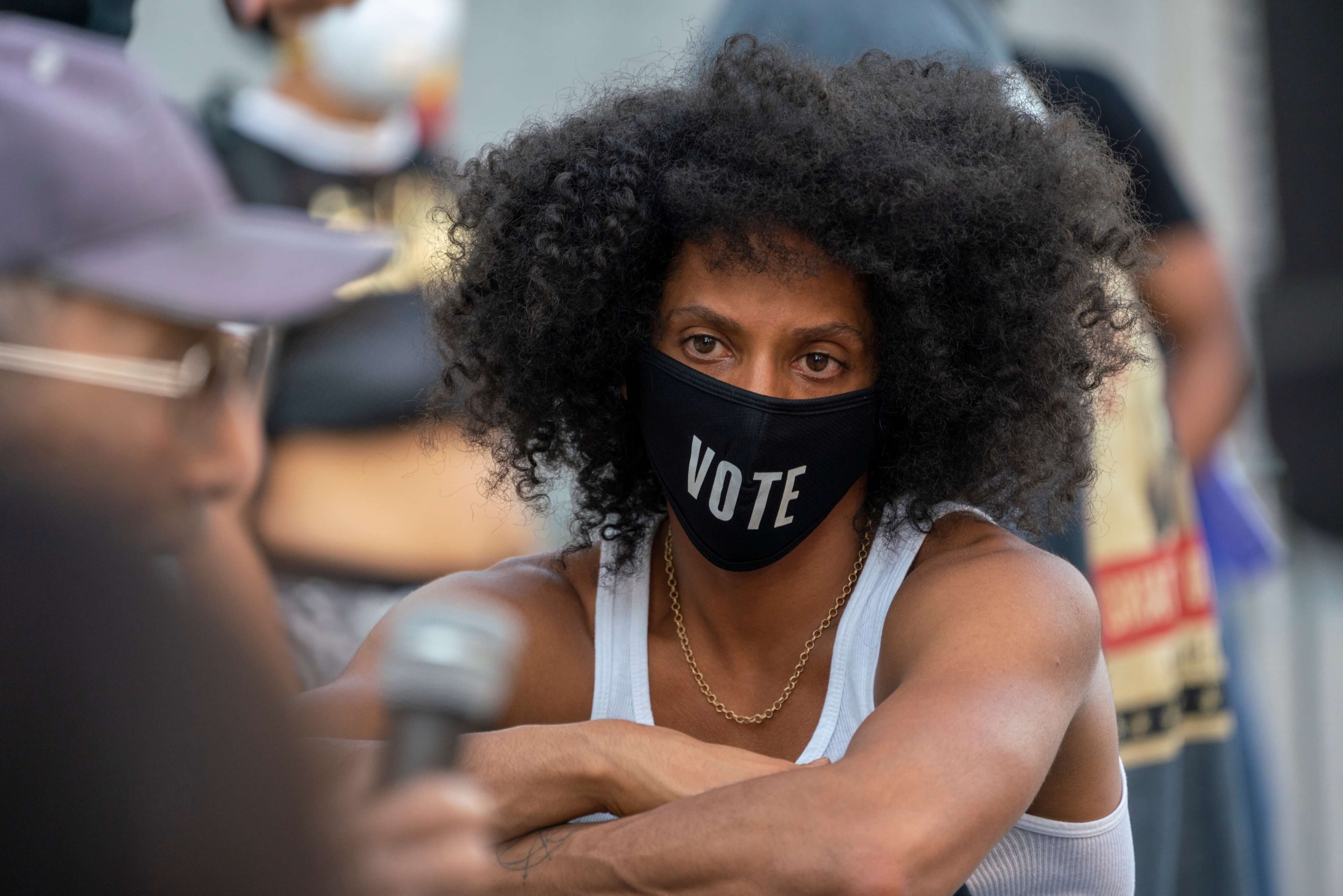
Credit: EPA/Kyle Grillot
This summer, millions of people around the world took to the streets to protest violence against Black people in North America: George Floyd, Breonna Taylor, Jacob Blake, Tony McDade and countless others, each murdered at the hands of police within weeks of one another. The media called it the summer of racial reckoning, a collective moment to reflect on centuries of inequity and anti-Black racism. But that minimizes the work of longtime Black queer and trans activists who have spent years pushing for change.
Among those on the frontlines is Janaya “Future” Khan, a founding member of Black Lives Matter Canada now based in Los Angeles. In an August op-ed for Time magazine, Khan put those months of protest into perspective. “Activism is about being alive: about fighting for life,” they write. “Activism is being for someone else who you needed most in your most vulnerable moment.”
This year, Khan was named one of Out magazine’s top 100 changemakers and profiled in Vogue for their uniquely spiritual approach to the racial justice movement. But they are one among many thousands of LGBTQ2S+ Black people, Indigenous people and people of colour coming together to demand change, equity and a better future for all.
—Erica Lenti
Chase Strangio and the LGBTQ2S+ political changemakers
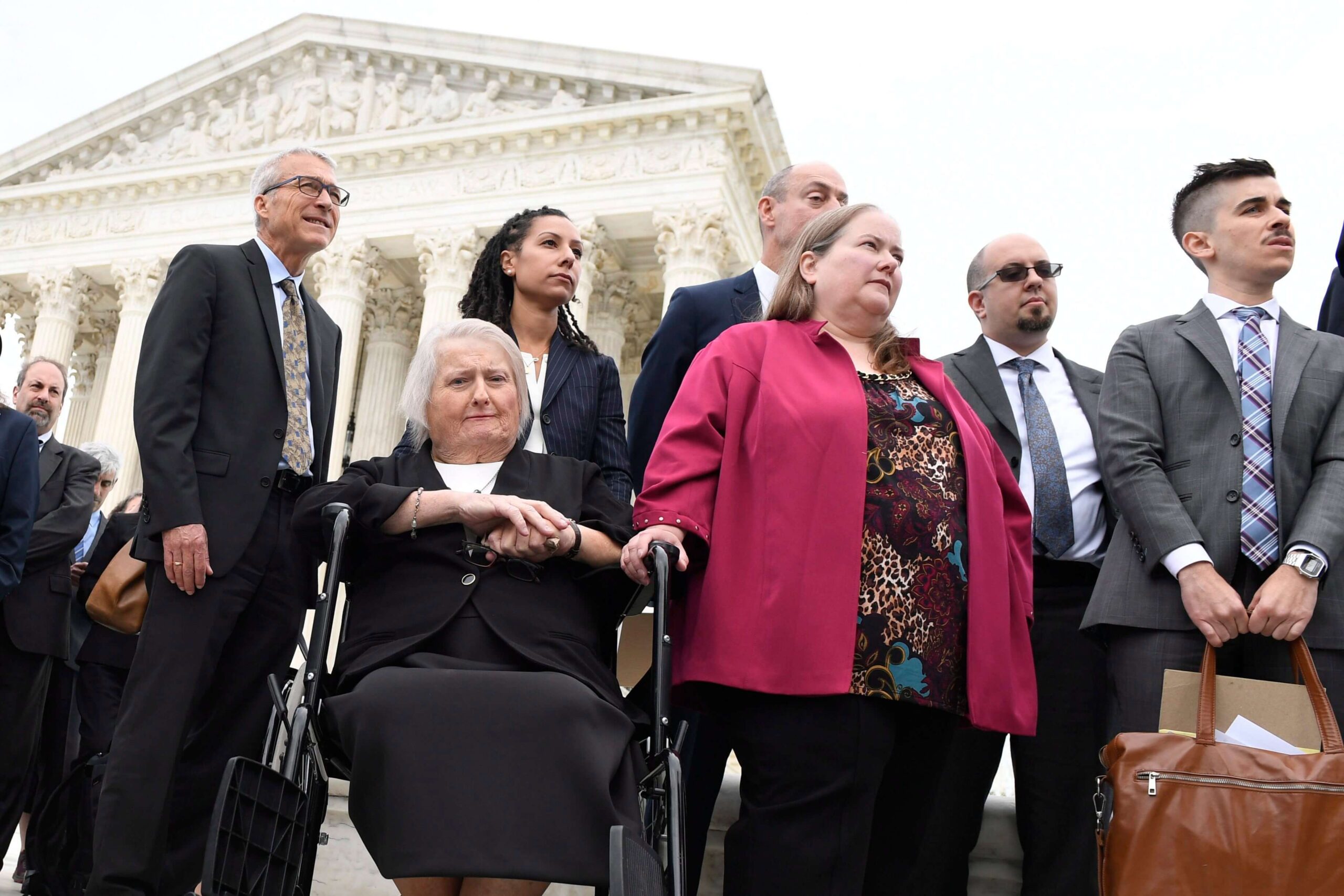
Credit: AP Photo/Susan Walsh
When the ruling came down in a landmark SCOTUS case to protect LGBTQ2S+ Americans from discrimination in the workplace, Chase Strangio struggled to comprehend the information before him. In a now-immortalized string of tweets, the ACLU lawyer spewed his thoughts as he read through the ruling: “Did we win????” “WE FUCKING WON!?” “I genuinely think this is a full win. We fully won.”
Such a victory was astounding even to the most seasoned of political activists: The case, brought to the courts by trans activist Aimee Stephens (who died before the ruling), has been deemed a legal win greater than even marriage equality. Even more stunning was that Trump-appointed Justice Neil Gorsuch backed the decision, writing its majority opinion. At a time when America’s commander-in-chief was actively undermining LGBTQ2S+ rights, the highest court of the land restored some semblance of justice that June day.
Though the case was, as Strangio puts it, his “baby,” the trans lawyer was quick to recognize the activism of Black and brown queer and trans folks who made the victory possible. And it’s from this grassroots, community organizing that other smaller but similarly heroic victories were won this year: the Oregon activists fighting to ensure the state’s trans students could use the school facilities they feel most comfortable in; the Idaho activists pushing for the rights of trans student athletes. Together, LGBTQ2S+ Americans are slowly but surely working to build an equitable country—one case at a time.
—E.L.
Maggie’s, The Okra Project and COVID-19 community caregivers
When COVID-19 caused a majority of the world to retreat into isolation, the effects were devastating for our most marginalized. In major cities like Toronto, Black people and other people of colour make up a majority of COVID-19 cases; that precarity only increases for those who are LGBTQ2S+. And then there are the queer and trans sex workers who lost most opportunities for income as lockdown measures tightened. According to Maggie’s—an organization dedicated to the support of sex workers in Toronto—finding protection, shelter and access to health care without the interference of stigma, shame and cost barriers can feel insurmountable for many sex workers during the pandemic.
It’s through the support of community caregivers like Maggie’s that many have been able to stay afloat. As Canadians braced for quarantine in March, the organization sprung into action, partnering with Butterfly: Asian/Migrant Sex Worker Support Network, to establish a COVID-19 emergency support fund for sex workers. The fund was specifically to help those workers who could not access other government aid. Within two weeks, the campaign hit $60,000 in donations.
In the U.S., meanwhile, The Okra Project—an organization established in 2018 to help feed Black trans folks in New York City, New Jersey and Philadelphia—pivoted to funding mental health care for those vulnerable in the pandemic. The Nina Pop and Tony McDade Mental Health Recovery and Free Therapy programs—named after two Black trans people murdered this summer—matched Black trans folks in need with a therapist. The need was so great that, in June, founder Ianne Fields Stewart told Self magazine the programs were raising up to $100,000 each day.
And there were countless small-scale initiatives, too—from the spreadsheet created to help trans people source hormones and other transition-related care during lockdown, to the queer doctors using their platforms to inform LGBTQ2S+ folks of our unique COVID-19 risks. It’s a reminder that, even during moments of crisis, community and chosen family always have our backs.
—E.L.
James Makokis
Dr. James Makokis came to international attention when he and his husband, Anthony Johnson, won Amazing Race Canada in 2019. The fan favourites were funny, affectionate and deeply conscious of what their appearance as a Two-Spirit couple meant for Indigenous representation. “People uniformly said how proud they were of us… and it was really touching to be a part of that,” Makokis, who is from Saddle Lake Cree Nation, told Xtra in 2019. (Johnson, who is Dine, is from the Navajo Nation.) But beyond his TV fame, the nehiyô physician has long been a hero in the field of Indigenous and LGBTQ2S+ health care.
As a primary care and transgender health care physician in Alberta, Makokis has incorporated Cree medicine, ceremony and language into his practice. And during the COVID-19 pandemic, he has been a tireless advocate for increasing public health and medical resources in Indigenous communities, as well as highlighting the long standing health care inequities on reserves, and racism within health care and medicine.
His latest position—at the newly launched Shkaabe Makwa Centre for First Nations, Inuit and Métis Wellness in Toronto—will allow him to extend his work into mental health. It will be the first hospital-based centre in Canada focusing on the mental health of Indigenous people by bringing together traditional knowledge and contemporary medicine. Makokis will be the centre’s medical director.
Over and over this past year, we’ve witnessed the power of our community’s helpers. And Dr. Makokis proves just how much we can make a difference.
—Rachel Giese
Backxwash and celebrated trans artists of colour
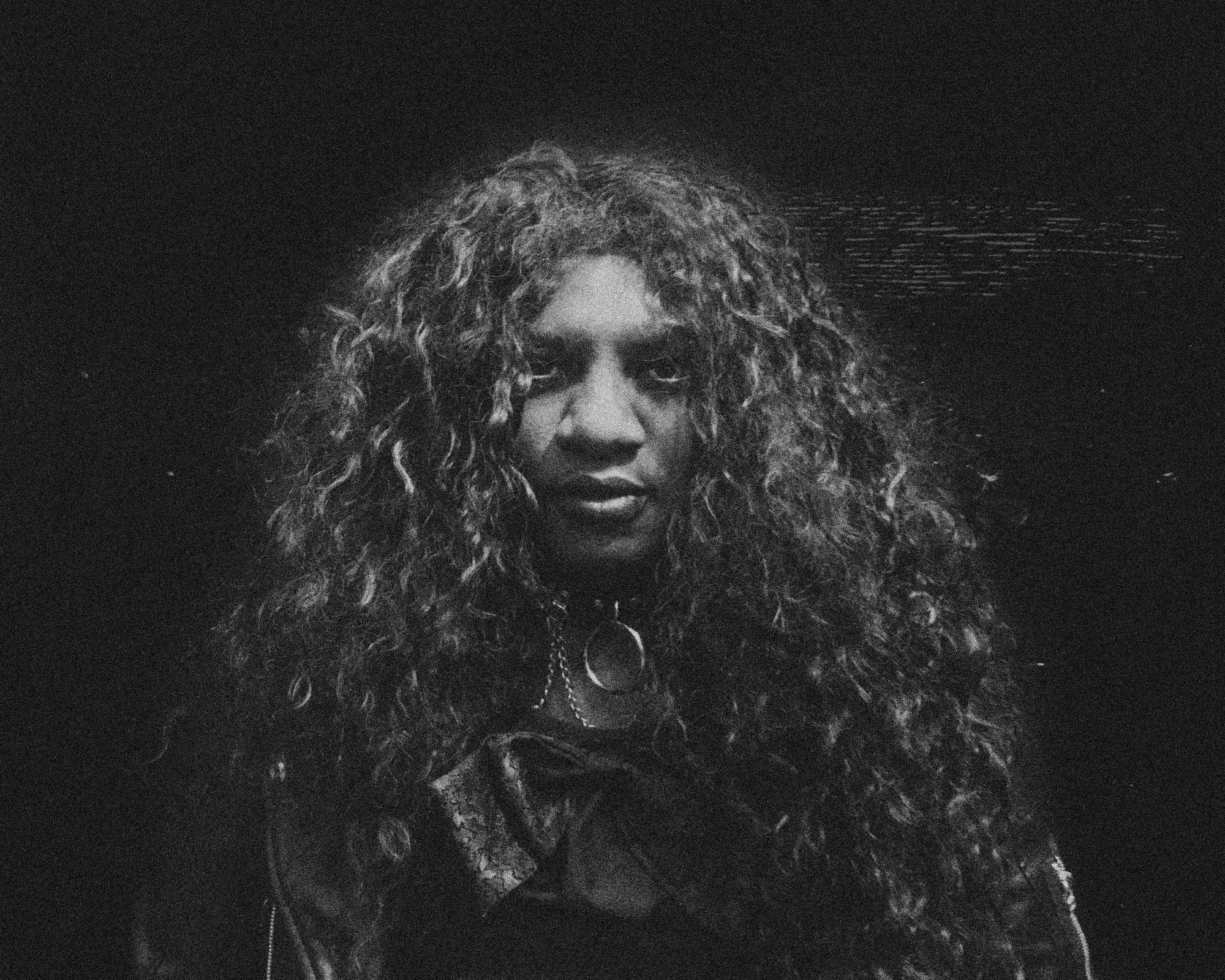
Credit: Chachi Revah
From best-selling fiction to Drag Race to ferocious hip-hop, 2020 was a banner year for trans artists of colour. Leading the charge was Montreal-based horrorcore rapper Backxwash, winner of the $50,000 Polaris Prize for indie music in Canada for their third album, God Has Nothing To Do with This, Leave Him Out of It.
Drawing upon their religious upbringing in Zambia, the rapper and producer mixed recordings of a gospel choir from their African congregation with samples of Black Sabbath, Led Zeppelin and David Lynch’s “In Heaven” (from the film Eraserhead) in their most personally revealing work to date. Xtra’s music writer Jesse Locke called the album “an invocation of self-altering fury.”
“I definitely feel the fiercest that I’ve ever been,” Backwash told Locke in May when the album dropped.
Backxwash’s win was just one of many musical highpoints in 2020. Musician and trans elder Beverly Glenn-Copeland’s 1986 album, Keyboard Fantasies, was voted a Polaris Heritage Prize winner less than two months after he released Transmissions, a career-spanning retrospective (which includes Keyboard Fantasies). L.A. singer Davia Spain dropped her first album, Dawning, while Calgary-based multidisciplinary artist Vivek Shraya, who debuted her first play, How to Fail as a Popstar, released three singles based on the play’s music.
Ever the over-achiever, Shraya also published her second novel, The Subtweet. Akwaeke Emezi returned to the best-seller list with their new novel, The Death of Vivek Oji, while Mauritian multi-disciplinary artist Kama La Mackerel’s debut poetry collection, ZOM-FAM, and Meredith Talusan’s memoir Fairest, made many best-of lists—including ours.
On TV, Brian Michael Smith became the first Black trans man to be a series regular for his role in 9-1-1 Lone Star! And over on Canada’s Drag Race, Nlaka’pamux queen Ilona Verley was one of the first Indigenous competitors in the franchise’s history, and used the platform to elevate the profile and understanding of their Two-Spirit identity. (Verley has since come out as trans.) Verley was then featured in a Vogue fashion spread, raising awareness of missing and murdered Indigenous women and girls.
And yet, for all this achievement, it was also a terrifying year marked by too many deaths of trans women and, in particular, trans women of colour. And the groundbreaking documentary, Disclosure, directed by Sam Federer and produced by Laverne Cox, investigated just that: How trans visibility and violence against trans folk often go hand and hand.
Six years ago, Cox appeared on the cover of Time with the headline “The Transgender Tipping Point.” This year showed how far we’ve come—and how very far we still have to go.
—Gordon Bowness
The queers who found love in 2020
This May, Alexandra Quiros and Dunia Araya became the first same-sex couple to wed in Costa Rica. The ceremony took place the very same night that a law granting queer couples the right to marry came into effect, making Costa Rica the first country in Central America to allow same-sex marriage.
For queer Costa Ricans, the right to marry was a long time coming. In 2018, the country’s Supreme Court gave the government 18 months to scrap its ban on same-sex marriage. Costa Rica is a majority Roman Catholic country, with several Evangelical lawmakers who oppose gay marriage, and public opinion on LGBTQ+ rights is mixed. Nevertheless, Quiros and Araya’s wedding was a landmark moment for queer visibility: The ceremony aired on national television as part of a three-hour program celebrating marriage equality.
Further north, sapphic love stories also served as bright spots in a dark year. Soccer fans rejoiced when Megan Rapinoe announced her engagement to fellow sports icon Sue Bird. Niecy Nash sent ripples through the dyke-osphere when she came out and announced her marriage to singer Jessica Betts. And Netflix’s tear-jerking documentary A Secret Love explored the 65 year-long relationship between Pat Henschel and Terry Donahue, a player in the women’s baseball league that inspired the movie A League of Their Own. The 2020 documentary warmed viewers’ hearts with its depiction of a long, happy and supportive queer relationship—an all-too-rare glimpse into the lives of queer elders.
—Ziya Jones
Dan Levy
It’s a show about a loveable group of raging narcissists living in a world where no one pays a price for their failings and where prejudice is something that exists elsewhere. After six seasons, Schitt’s Creek—a quirky Canadian comedy that grew into a juggernaut—signed off with a bang. The final episode aired this past spring, but Schitt’s Creek swept the comedy category at the Emmys in September, notching nine wins in all. It was the first time in Emmy history that a single show won all major comedy awards. And Dan Levy, the series’ gay star and co-creator, ended up with four trophies—also a first.
“Our show, at its core, is about the transformative effects of love and acceptance,” Levy said in one of his speeches. “That’s something we need more of now than we’ve ever needed before.”
When co-star and co-creator Eugene Levy accepted the best comedy award, he thanked his son for creating a show that was a “castigation of homophobia.” Dan’s face as he looked on was everything.
In all the hoopla that followed, Levy announced on Instagram that he was going back to school to study Indigenous history and contemporary issues, and that he would host a weekly discussion group with the professors. Within two weeks, more than 60,000 people had registered for the online course at the University of Alberta. “If 2020 has taught us anything,” Levy told his 3 million followers, “it’s that we need to actively relearn history.”
In addition to appearing on People magazine’s sexiest man list, Levy added a little tinsel to his terrific year by stealing the show as the lesbian’s gay BFF in the holiday comedy Happiest Season.
Big-hearted Canadian queers infiltrating the U.S. with a message of love and respect—we at Xtra stan.
—G.B.
👀 Our shady bitches 👀
The Donald Trump administration
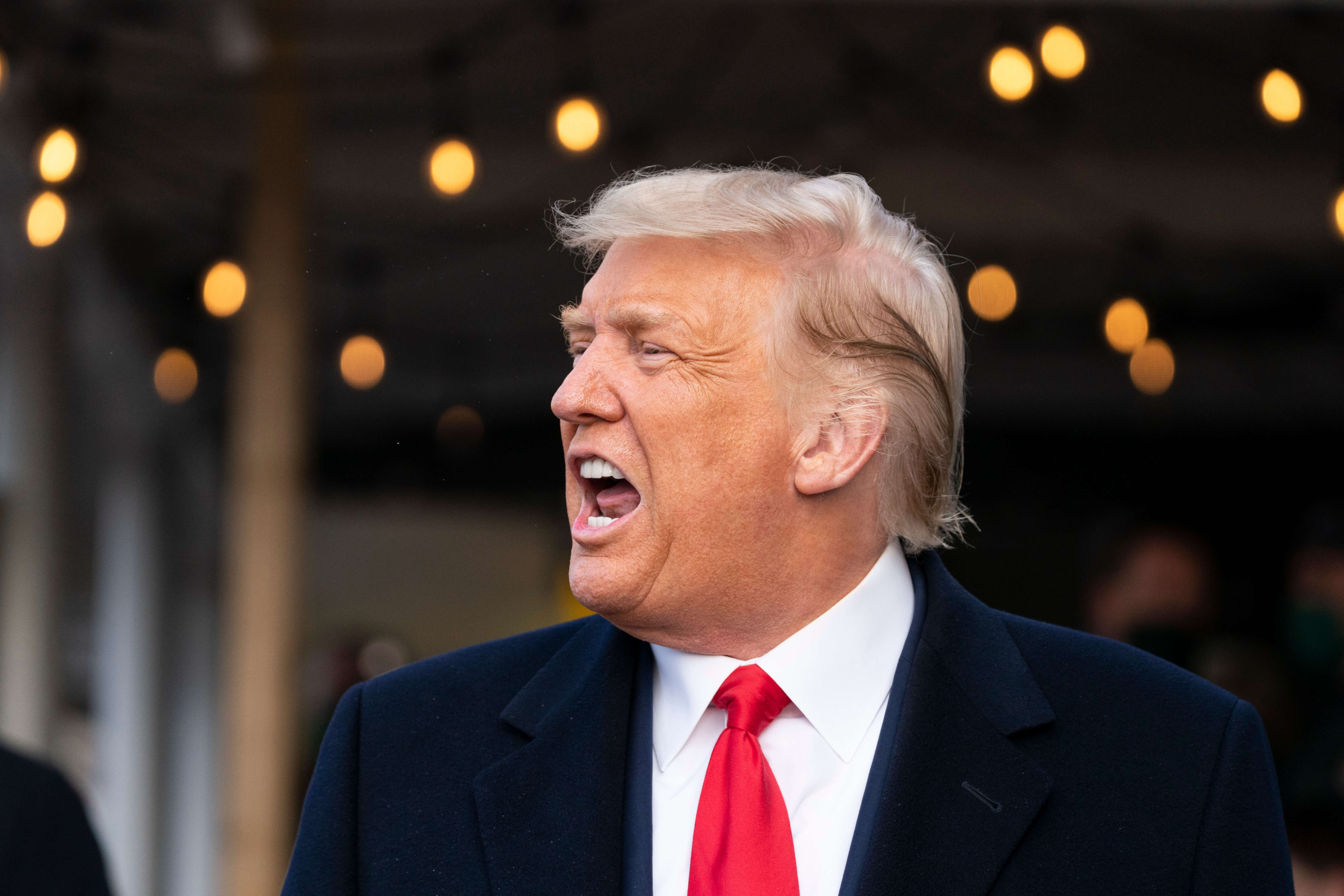
Credit: AP Photo/Alex Brandon
There was no shadier supervillain on the planet in 2020 than Donald Trump, the man leading the world’s most powerful country straight into a dumpster fire. The Trump presidency has been called one of the most dangerous administrations for LGBTQ2S+ Americans, and rightfully so: The reality TV star-cum-political leader spent his first term chipping away at the rights of queer and trans people. That included attempts to strip health care rights from trans and non-binary Americans, banning trans people from the military and trying to make it legal to fire employees on the basis of their sexual orientation or gender identity. The final nail in the coffin: Mere days before November’s election, conservative Justice Amy Coney Barrett was confirmed to the Supreme Court, solidifying the right’s stronghold—and further threatening the security of gay marriage in America.
And let’s not forget Trump’s trusty sidekick, Mike Pence. The vice-president—who, as governor, disastrously mismanaged an HIV outbreak in Indiana—headed up the COVID-19 task force. The result: More than 300,000 COVID-related deaths, and more than 15 million infected (including the president and at least three dozen people from his inner circle). Among those most affected are racialized LGBTQ2S+ people.
There is light at the end of this orange-tinged tunnel: Joe Biden will assume the presidency in mid-January, ending the terror that is Trump’s reign. But it will take years to clean up the political mess that Trump and his lackeys left behind.
—E.L.
J.K. Rowling and the TERFs

Credit: EPA/Neil Hall
Some people seized the slow pace of lockdown as a chance to self-reflect and grow. J.K. Rowling wasn’t one of them. Rowling, who rounded off 2019 by coming out as a TERF, used 2020 as an opportunity to double down publicly on her transphobic beliefs. The consistently cringe author was met with backlash in June when she critiqued on Twitter an article about period poverty, taking aim at the phrase “people who menstruate.” A few days later, amid growing criticism, she released a near-3,700 word screed in which she managed both to claim to support trans people and deny that trans women are women.
Hellbent on doing the most, Rowling didn’t stop there. In September alone, she promoted a clothing company known for selling deeply transphobic merch; released Troubled Blood, a novel in which a cis-male killer dresses in women’s clothing to commit his crimes; and faced yet more backlash when it was revealed that her pen name, Robert Galbraith, is also the name of a harmful conversion therapist.
Rowling has a long history of saying things no one needs to hear (ahem, gay Dumbledore, Black Hermione). But this time the stakes are particularly high: Lending her high-profile voice to the anti-trans conversation has only served to rile up the legions of TERFs who frequently mobilize to harass trans folks on and offline.
—Z.J.
Polish President Andrzej Duda and the gay marriage haters
Poland may have decriminalized homosexuality in 1932, but same-sex marriages and civil unions remain illegal in the country, as do adoptions by queer couples. And under President Andrzej Duda—who was re-elected for a second term in June—LGBTQ+ rights have become a flashpoint issue.
As of this year, about 100 regions and towns—nearly one-third of the country—have labelled themselves as “LGBT-free zones,” passing resolutions that condemn “LGBT ideology.” While the resolutions are not enforceable by law, they have contributed to an increasingly hostile environment for queer and trans residents, especially those involved in activism. A number of queer activists were arrested in 2020 for peaceful protest actions under Poland’s broad blasphemy laws.
Duda’s Law and Justice Party has long used LGBTQ+ people as scapegoats, positioning them as threats to traditional and family values. Anti-queer rhetoric was a central pillar of his re-election campaign, with the politician pledging to ban teaching LGBTQ+ issues in schools, and claiming that queer “ideology” is more dangerous than communism.
—Z.J.
The gays who gave us a bad name
Surprise: The call is coming from inside the house. If you thought a bunch of high-profile, openly queer and trans celebs in the mainstream meant better representation for us all, 2020 was the year that dashed your spirits. Because, let’s face it: Some of our very own really messed up.
Talk-show mogul and world’s most famous lesbian Ellen DeGeneres kicked things off in March, comparing quarantining in her multimillion-dollar mansion to being in prison. But it got much worse: Over the summer, several employees from The Ellen DeGeneres Show came forward with allegations of a toxic workplace environment—including allegations of racism from BIPOC crew members. (And let’s not forget her friendship with George W. Bush, either.)
Meanwhile, drag queen extraordinaire RuPaul Charles came under fire after admitting he leases the mineral rights to land he owns in Wyoming to oil companies. Gay Twitter aptly roasted Ru, birthing one of the greatest memes of the year: Oh, the fracking?
For the past decade, Ellen and RuPaul have been among the most famous queer figureheads in the world, and possibly the only gays your straight parents could name. But it’s time for change: 2021 might just be the year to usher in new mainstream role models—and the rest of you, sashay away.
—E.L.
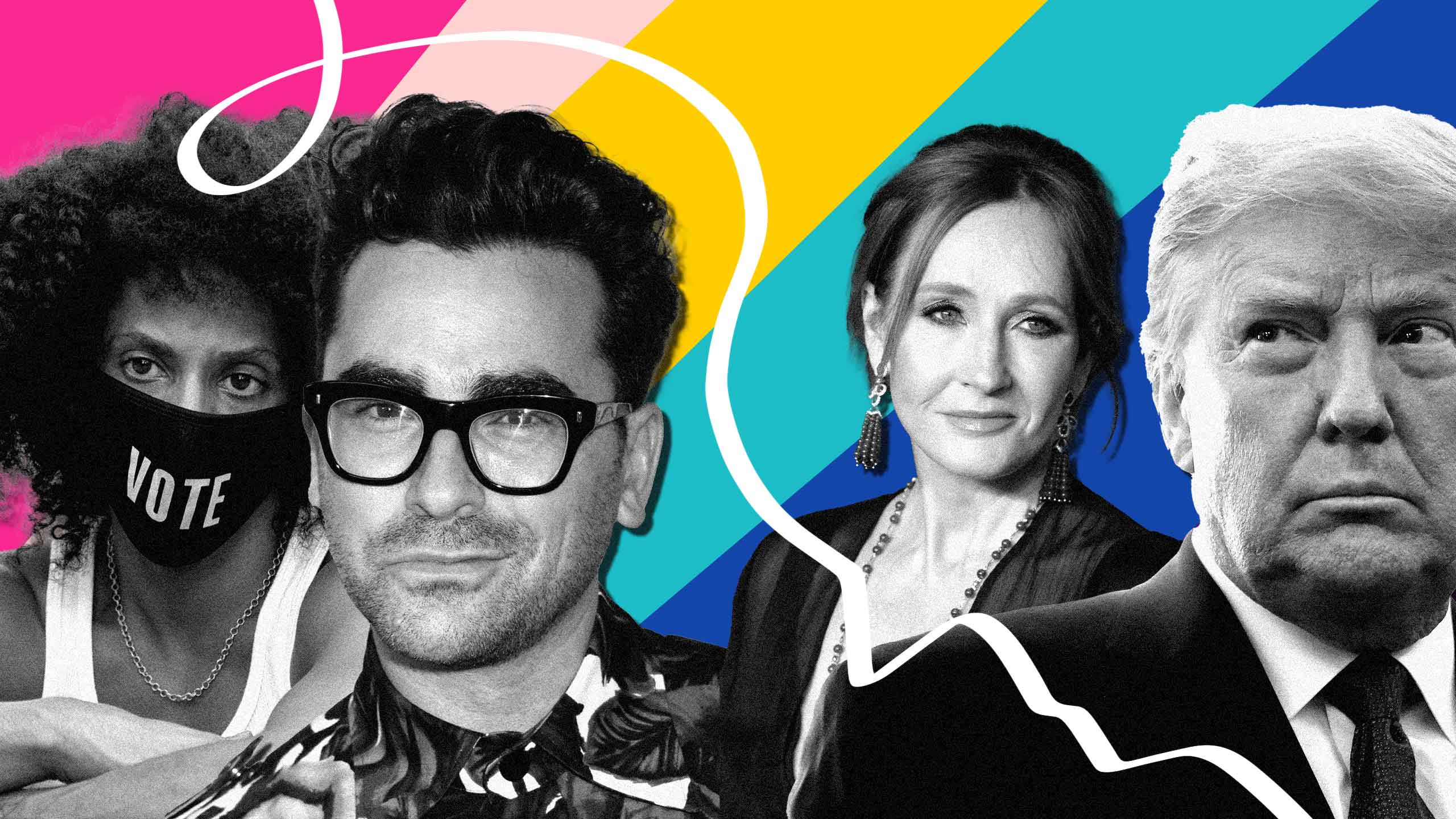




 Why you can trust Xtra
Why you can trust Xtra


